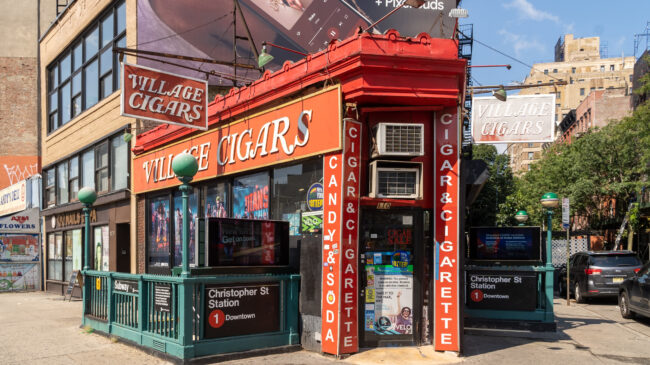In the state’s budget negotiations, New York Gov. Kathy Hochul recently failed to convince lawmakers to support a ban on flavored tobacco products. Now, however, the governor appears to be testing support for a complete ban on all tobacco products. Prohibitions of alcohol and drugs have failed to create the desired outcomes in the past, and a ban on tobacco across New York state would fail to achieve the positive health outcomes advocates of the ban are hoping for.
A survey sent to “community leaders” by the New York Health Department asked, “What is your opinion about a policy that would end the sale of all tobacco products in New York within 10 years?” and, “What is your opinion about a policy that would ban the sale of all tobacco products to those born after a certain date? For example, those born after the year 2010 or later would never be sold tobacco.”
Tobacco prohibition is frequently considered necessary to save the next generation from smoking. A “smoke-free society” is defined by the European Union and the United Kingdom as fewer than five percent of the population smoking. By that definition, according to the Centers for Disease Control and Prevention, New York has already achieved a smoke-free generation. Just 4.2 percent of youth have reported smoking once in the past month, and just 0.6 percent reported smoking daily. A ban on all tobacco in 2023 instead aims at the choices of adult New Yorkers.
This trial balloon by the Health Department suggests it would not just include cigarettes. It would also include premium cigars, used almost exclusively by adults, and safer nicotine products like e-cigarettes and oral nicotine products, several of which are authorized by the Food and Drug Administration as “appropriate for the protection of public health” because they are safer than cigarettes and help smokers quit.
In 2020, New York banned the sale of flavored e-cigarettes. But prohibition hasn’t stopped the black market sale of these products. Last year, in the town of Auburn, the police department raided Mohamed Algamel’s smoke shop, seizing thousands of illicit vape cartridges and untaxed cigarettes. The illegal sale of flavored vapes is common across New York City’s bodegas, and New York is the top destination in the country for cigarette smuggling.
Tobacco prohibitions are not novel in the United States, but these proposals by the Health Department would be the most radical. Research shows bans on products like these do not work.
In 2020, Massachusetts banned the sale of flavored tobacco products, including menthol cigarettes. Reason Foundation research found an explosion of cigarette sales in neighboring states like New Hampshire with lower tobacco taxes and no flavor ban after the Massachusetts ban.
Outside of the U.S., some countries have experimented with total tobacco bans, and the results are always the same. The Kingdom of Bhutan banned tobacco in 2004, and South Africa did the same in 2020 during the COVID-19 pandemic. Both countries suffered a massive increase in tobacco smuggling. A 2011 study in the International Journal of Drug Policy concluded that claims that Bhutan’s ban would “induce tobacco consumption to cease or nearly cease have not occurred.” Bhutan abandoned tobacco prohibition in 2020.
Despite erecting fences and introducing military patrols on its border, South Africa failed to stem the flow of illicit cigarettes from neighboring Zimbabwe. South Africa lost between $300 and $500 million in tobacco taxes in a five-month period before prohibition was ended. A separate analysis of the ban found more than 90 percent of South Africa’s smokers surveyed continued to smoke after prohibition.
Supporters of tobacco bans in the United States often claim it is only sellers who would face penalties under any prohibition scheme. That is not true. Simply avoiding cigarette taxes is a Class E felony in New York City and can result in two-to-five years in prison. Prohibition always requires enforcement, and ordinary New Yorkers, not Big Tobacco executives, would suffer if cops are further deputized to be the tobacco police. Do we really need more Eric Garners?
In, Massachusetts, the state’s Multi-Agency Illicit Tobacco Task Force is seizing so many black market flavored tobacco products they’re requesting more space to store them and are asking for new criminal penalties to make it easier for them to crack down on the smugglers and buyers.
New York is furiously debating how to both control crime and get the state’s budget under control. Tobacco prohibition would worsen both problems, potentially costing the state $2 billion annually in tax revenue. Much loved institutions among New York’s cigar enthusiasts like Club Macanudo could see their doors close thanks to prohibition. Not to mention the dozens of premium cigar shops across the state selling products that have nearly zero appeal to youth.
Data from failed prohibition efforts show that banning tobacco products would hurt New York’s consumers, fail to produce the promised positive health outcomes, and increase law enforcement presence in minority communities.

